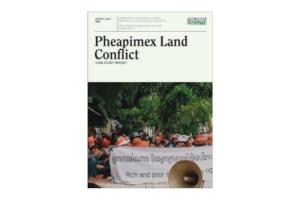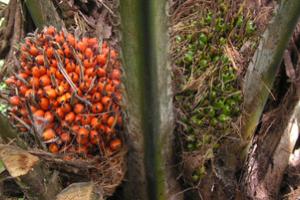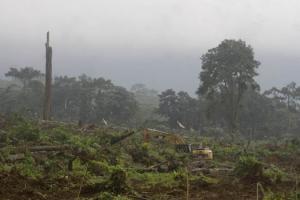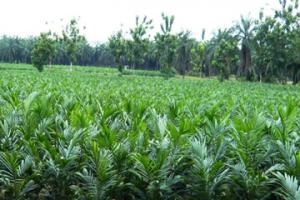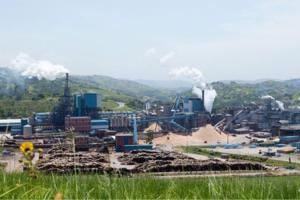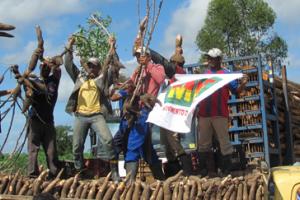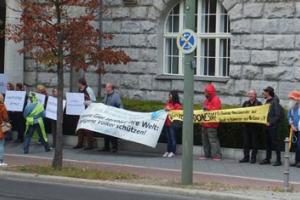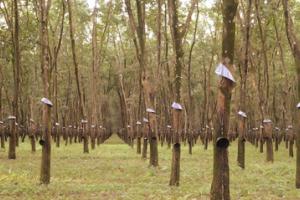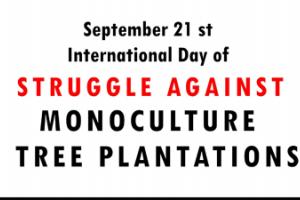The company promised to increase forest cover but they planted cassava; cassava is not a tree; a cassava plantation is not a forest.
(Resident from Ansar Chambor, Pursat, Cambodia)
Large-Scale Tree Plantations
Industrial tree plantations are large-scale, intensively managed, even-aged monocultures, involving vast areas of fertile land under the control of plantation companies. Management of plantations involves the use of huge amounts of water as well as agrochemicals—which harm humans, and plants and animals in the plantations and surrounding areas.
Bulletin articles
11 September 2013
Other information
11 September 2013
"Expansion of palm oil in the Brazilian Amazon: an analysis of impacts on family farm in north-eastern Pará"
Reporter Brazil – Organization for Communication and Social Projects’s Biofuel Watch Center
Download here: http://reporterbrasil.org.br/documentos/pamoil.pdf
Bulletin articles
11 September 2013
In one of his last works – “Oil palm in Africa: Past, present and future scenarios”, published in December 2010 – our beloved friend and colleague Ricardo Carrere provided an overview of the history and current status of monoculture oil palm plantations in Africa (see http://wrm.org.uy/oldsite/countries/Africa/Oil_Palm_in_Africa.pdf).
Bulletin articles
11 September 2013
Bulletin articles
11 September 2013
Bulletin articles
11 September 2013
Bulletin articles
11 September 2013
Millions of hectares of industrial oil palm plantations have been expanding in many countries of Asia, Africa and Latin America with a well documented history of tropical deforestation –including enormous fires- and a sad toll of human rights violations.
However, the powerful interests behind this business continue actively promoting this crop, against a background of growing opposition at the local level.
Bulletin articles
11 September 2013
Bulletin articles
11 September 2013
Hevea brasilensis, known as the Pará rubber tree or, most commonly, the rubber tree, is native to South America. It is the member of the genus Hevea most frequently exploited industrially, as the milky latex extracted from the tree is the primary source of natural rubber.
Publications
30 August 2013
Governments are opening the doors to corporations for planting vast areas of land with oil palm plantations. This trend is not only happening in West and Central African countries, but is even expanding to parts of Eastern Africa. Large scale oil palm plantations are already causing serious environmental and social impacts in some countries, resulting in loss of community rights over their territories.
20 August 2013
September 21, the International Day Against Monoculture Tree Plantations, is a day for our organizations, networks and movements to celebrateresistance and raise our voices to demand, Stop the Expansion of Monoculture Tree Plantations! which threaten the sovereignty of our peoples.
We invite you to join the annual campaign that continues to grow every year, reaching new places where different types of activities are carried out: press releases, distribution of flyers, conferences, seminars, public demonstrations, information campaigns on websites and social networks, etc.
